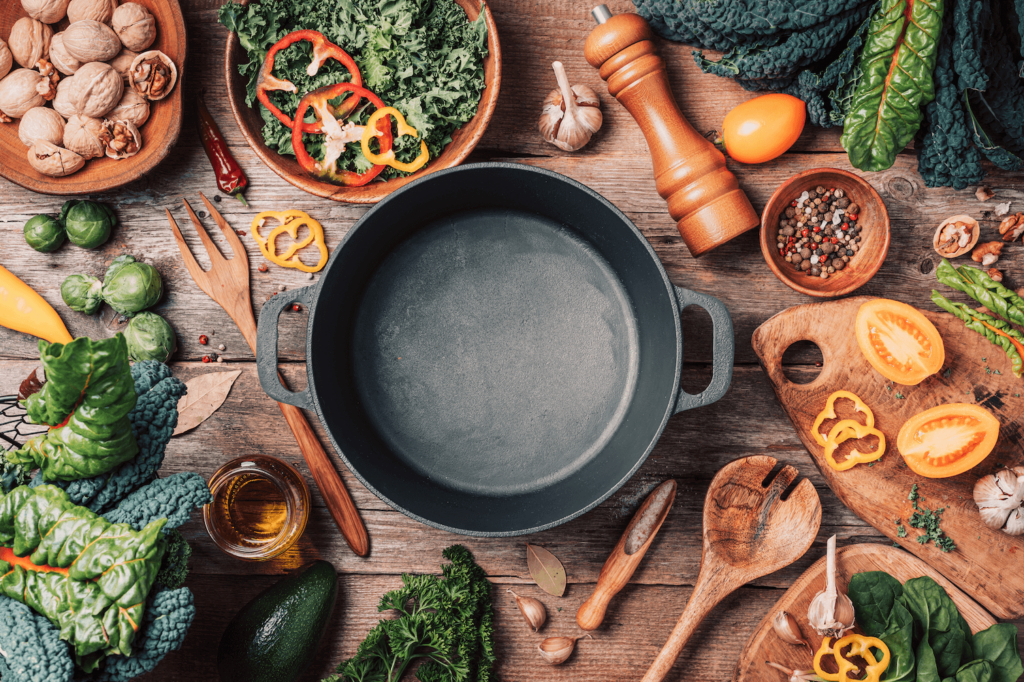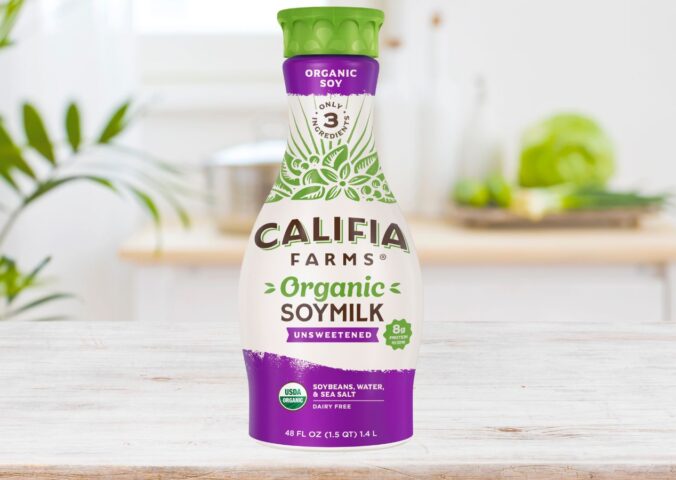Earlier this year, British adventurer Bear Grylls claimed that he had given up his vegan diet.
Apparently, after being an advocate of plant-based eating for years, he saw his health decline and his kidneys suffer.
In an interview with GQ Magazine in July, Grylls said: “I was a massive advocate of the vegan lifestyle for years, and wrote a book on it, but my health tanked on it. When I got COVID a couple of years ago, I doubled down on what I thought was healthy—raw juice, vegetables—and got mega-sore kidneys, almost kidney stones.
“The more research I’ve done, I’ve noticed raw vegetables are really not good for you. So I’ve started incorporating quality grass-fed steak and liver. My lunch is meat, eggs and dairy, a lot of butter, and fruit. I have liver probably every other day. I started to get strong again.”
A recent TV interview with Grylls led many papers to resurface the interview, sparking headlines that veganism “negatively” impacted his health.
So, does a vegan diet cause kidney stones? And is it preferable to include meat and dairy products for kidney health and overall health?
Let’s look at the facts.
Was Bear Grylls vegan?
When Grylls talks about the vegan book he wrote, it seems he is referring to Fuel for Life, which he co-wrote with a nutritionist. The book advocates a dairy, wheat, and sugar-free diet, but also includes recipes for meat. In the book, Grylls stated that while adopting a more plant-based diet, he still ate what he called “honest meat” (unprocessed or factory-farmed). So, was Grylls ever in fact vegan?
Given his statements, it’s likely Grylls was including plenty of animal protein in his supposed plant-based diet, which may have contributed to his “mega-sore kidneys.” However, it’s also possible other factors were behind the issue (we’ll get into this soon).
It’s not the first time a vegan diet and kidney stones has made headlines. Back in 2020, actor Liam Hemsworth blamed his plant-based diet for the condition, citing oxalates as the cause.
What are oxalates?

Oxalates are compounds in plants whose function is to bind excess calcium that the plant takes up in water through its root system. Oxalates accumulate in leaves, fruits, and seeds. When plants shed these, they get rid of excess calcium with the oxalate. However, this means that oxalates are present in some parts of plants that humans consume, such as green leafy vegetables.
In humans, oxalates have no beneficial effect; they pass through the liver and kidneys and are excreted in the urine. When oxalates combine with calcium in the urine, they form calcium oxalate crystals. The crystals may become insoluble stones depending on other factors, such as how much citrate is present. Doctors call these renal calculi or kidney stones.
Only 50 percent of the normal daily urinary oxalate excretion is from food; the rest is due to the body’s own production as part of metabolism.
Foods high in oxalates include:
- Spinach
- Green cabbage
- Beets
- Nuts
- Tea
- Rhubarb
- Chocolate
- Whole grain cereals
Research suggests getting enough calcium in the diet protects against kidney stones. However, calcium supplements may not have the same effect or may increase oxalate formation.
Meat and kidney health
A 2020 review stated that current scientific evidence agrees on the harmful effects of high meat and animal protein diets for kidney stones and the protective effect of fruits, vegetables, and vegetarian diets. The review suggests that animal protein — such as eggs, as well as poultry, fish and other meats — together with a low intake of alkaline plant foods, upsets mineral balance and is detrimental to kidney stone formers. The review also stresses the importance of adequate calcium and fluid intake.
The National Institute for Diabetes and Digestive and Kidney Diseases (NIDDK) recommends limiting animal protein for all types of kidney stones, including calcium oxalate, calcium phosphate, and uric acid stones.

Furthermore, the National Kidney Foundation advises that eating whole grains, nuts, fruits, and vegetables is one of the most important ways to keep kidneys healthy. Additionally, they state that a plant-based diet may benefit someone with early kidney disease or prevent it from occurring in the first place.
So it’s clear that scientific evidence and expert advice does not agree with Grylls and Hemsworth. In fact, following a meat-heavy diet that Grylls promotes may be a very real risk for kidney stone formation.
Are some people more prone to kidney stones?
If diet was a factor in Grylls’ and Hemsworth’s kidney troubles, they may have been consuming too many oxalate-containing foods, such as spinach. (Hemsworth told Men’s Health that he was having five handfuls of spinach each morning in his smoothie.)
Some individuals are more susceptible to kidney stones, with studies suggesting there are environmental, dietary, hormonal, and genetic components. To date, scientists have identified 30 inherited genes that increase the risk of kidney stones.
Therefore, limiting high oxalate foods may be a sensible approach for people susceptible to kidney stones, or those who’ve had them previously.
The National Kidney Foundation advises people who form calcium oxalate stones to moderate their intake of foods such as spinach, peanuts, sweet potatoes, and rhubarb. However, it notes that cutting out oxalate foods from the diet alone is not a smart approach from an overall health perspective. Instead, they suggest eating calcium-rich foods with oxalate foods, making them more likely to bind together in the intestine before the kidneys process them.
Removing oxalates from food

Additionally, people can reduce oxalates with cooking and preparation methods. For example, a 2020 review notes that boiling spinach reduces oxalates by 87 percent, and steaming it reduces them by 42 percent. Other vegan staples such as beans and chickpeas lose significant amounts of oxalates during canning, soaking, or boiling.
The review also explains that gut health and the microbiome may also play a part in oxalate absorption and potential kidney stones. It concludes that although some people seem more prone to kidney stones, for the rest of the population, eating calcium and potassium with oxalate foods and using cooking methods to destroy oxalates significantly minimizes health risks. Furthermore, oxalate foods possess many protective, beneficial compounds that may outweigh any possible adverse effects of oxalate.
Summary
Oxalates are natural compounds found in some foods that can be reduced by soaking, canning, or cooking. Eating too many high oxalate foods may contribute to kidney stones, particularly if someone is susceptible to them because of inherited genes or other factors.
Eliminating oxalate foods from the diet is not necessary for most people and risks missing out on the beneficial nutrients that foods such as green leafy vegetables, grains, and beans contain. Instead, ensuring that the diet is sufficient in calcium is a sensible approach, as this may help the body to process oxalates safely.
Experts recommend plant-based dietary approaches for kidney health and advise against consuming too much animal protein. Therefore, a vegan diet is safe for the kidneys and may benefit overall health.






